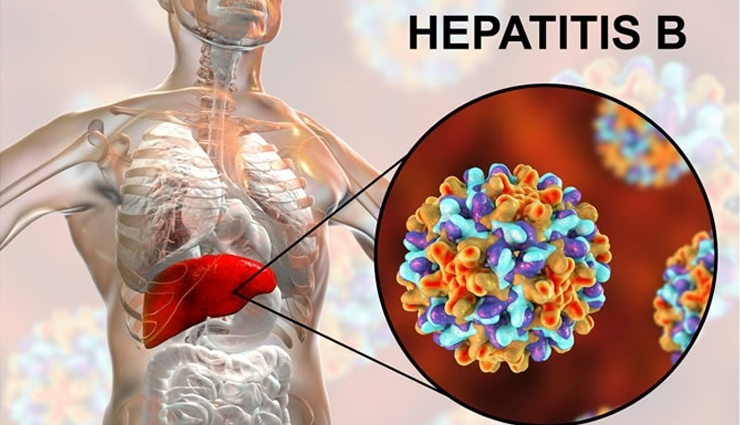6 Natural Remedies For Hepatitis B

The scary part is that it is 50–100 times more infectious than HIV. It’s also more infectious than hepatitis C. Both hepatitis B and C are transmitted through infected blood, but hepatitis A is transmitted through infected fecal matter. The virus can live outside of the body for many days and infect you unknowingly. That’s why people at risk of acquiring hepatitis B should be screened. That way those infected can limit the spread of the virus.
Hepatitis B is a potentially life-threatening liver infection caused by the hepatitis B virus (HBV). It is a major global health problem. It can cause chronic infection and puts people at high risk of death from cirrhosis and liver cancer. A safe and effective vaccine that offers a 98-100% protection against hepatitis B is available. Preventing hepatitis B infection averts the development of complications including the development of chronic disease and liver cancer.

One of the most important ways for a person with hepatitis B to live a longer, healthier life is to focus on maintaining an adequate nutritional balance with a whole foods and anti-inflammatory diet. Eating foods that contain chlorophyll can also be beneficial for reducing oxidative stress and liver damage.
To help prevent the spread of the hepatitis B virus and ease the symptoms of an acute infection, avoid consuming foods and drinks that increase inflammation. This includes sugar, refined oils, refined carbohydrates, conventional dairy products and farm-raised meats. Try not to eat processed foods that typically contain refined ingredients and additives. It’s also very important to avoid drinking alcohol or using over-the-counter drugs, especially acetaminophen. They can worsen liver damage, which is a concern for people with hepatitis B.
Vomiting is a common symptom of hepatitis B, which can cause dehydration. You need to make sure you’re drinking enough fluids throughout the day so that you don’t become dehydrated. Drink plenty of water. Have at least an 8-ounce glass with every meal and water between meals, too. Drinking fresh fruit and veggie juices can be helpful. So can consuming bone broth, which is full of essential nutrients that will boost your immune system and help you to fight the virus. Instead of turning to sports drinks that are full of sugar and artificial flavors, drink coconut water, which will help you to avoid an electrolyte imbalance.
Milk thistle benefits and supports the liver. It’s a powerful detoxifier. It helps rebuild liver cells while removing bodily toxins that are processed through the liver. The silymarin found in milk thistle acts as an antioxidant by reducing free radical production and oxidative stress. It even acts as a toxin blockade agent that inhibits the binding of toxins in liver cells. Research on milk thistle shows it can be used to treat acute and chronic viral hepatitis and liver disease.
To help relieve hepatitis B symptoms and prevent the spread of the virus, you have to reduce stress levels and take it easy. Don’t engage in strenuous activities, especially if you are feeling tired and low energy. Allow your body to rest. Try some natural stress relievers, like taking a short walk outside, doing some gentle yoga. Take a warm bath or read an uplifting book. Another easy way to reduce stress and bring on feelings of peace is to diffuse lavender essential oil at home or work. If you don’t have a diffuser, just tub 1–2 drops of lavender oil into your temples or inhale it directly from the bottle.# Boost your Glutathione Levels
Scientific research shows there’s a direct correlation between glutathione levels and viral activity for both hepatitis B and C. Glutathione is a peptide that consists of three amino acids, L-cysteine, L-glutamic acid and glycine. It is known as the “mother of all antioxidants” because it supports vital body functions, including liver detoxification. The liver uses glutathione to break down toxins. This is why glutathione levels decrease when the viral load increases. If you have chronic hepatitis B for more than 90 days, ask your healthcare provider to check your glutathione levels. If they are low, you can take L-cysteine (NAC), a-Lipoic acid and L-glutamine to help restore your glutathione levels.
The Hepatitis B vaccine is the mainstay of hepatitis B prevention. WHO recommends that all infants receive the hepatitis B vaccine as soon as possible after birth, preferably within 24 hours – followed by two or three doses of hepatitis B vaccine at least four weeks apart to complete the series. Timely birth dose is an effective measure to reduce transmission from mother-to-child. According to latest WHO estimates, the proportion of children under five years of age chronically infected with HBV dropped to just under 1% in 2019 down from around 5% in the pre-vaccine era ranging from the 1980s to the early 2000s. This marks the achievement of one of the milestone targets to eliminate viral hepatitis in the Sustainable Development Goals ─ to reach under 1% prevalence of HBV infections in children under five years of age by 2020.